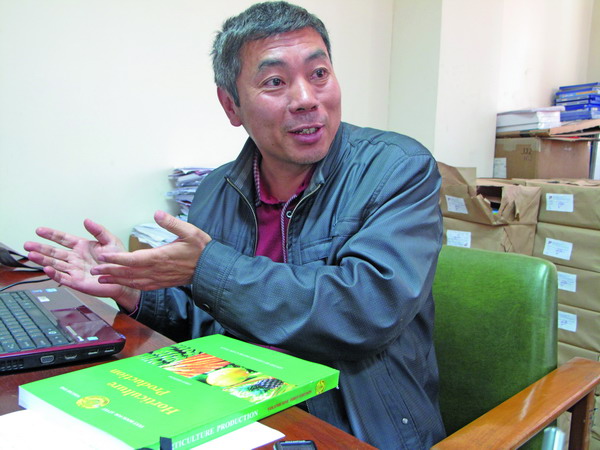Bountiful fields of knowledge
 |
|
Peng Dajun who is an agricultural trainer in Ethiopia, says the locals are eager to learn. Wang Chao/China Daily |
Injera, a sourdough bread made from a grass called teff, is a staple food in Ethiopia.
"If they don't get their injera, they go on strike," a manager from a Chinese industrial park in Addis Ababa jokes.
Peng Dajun was a researcher in hybrid rice at the agricultural research center in Hunan province, until he was posted to Ethiopia to take part in a World Bank agricultural training program 14 years ago. When he first arrived every plant he saw was alien to him.
However, Peng has learned a lot about local crops through his work in the fields, and now teff is as familiar as an old friend.
When the educational program was set up under the aegis of the World Bank, China, India and Kenya each sent 30 to 40 teachers a year. But the numbers gradually shrank, and in 2011 it was transformed into a project funded by the Chinese government alone. There are now 19 instructors, 18 of them Chinese and one Indian.
The program operates in 25 colleges, five belonging to the federal government, the others belonging to state governments. Students have to finish 10th grade before they are eligible to be admitted into the program. The tuition fee is nominal: 200 birrs ($10) to 500 birrs every academic year.
Peng said it's hard to gauge what kind of impact this program has had on Ethiopia. But he recalled what he saw in his first year in the country: "Before the rainy season, farmers set fires to burn down the previous year's crops and grass, and distributed seeds at random. Once that was done, the only thing left was to wait until after the rainy season when they harvested whatever happened to pop up out of the soil."




















